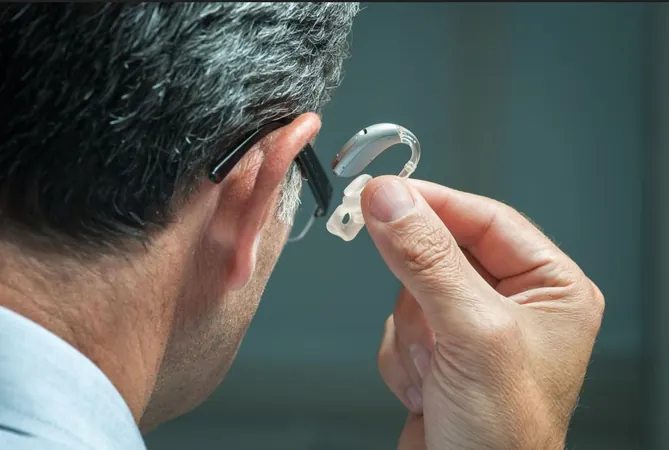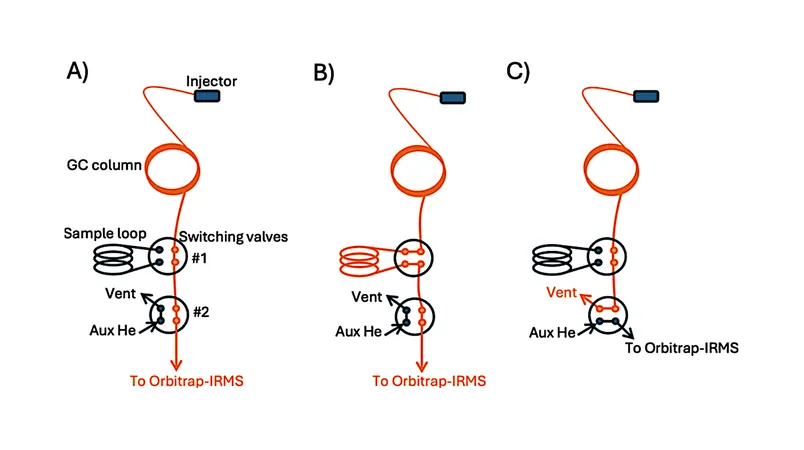
Unlocking the Secrets: How Early Hearing Aid Use Could Slash Dementia Risk!
2025-08-19
Author: Wei Ling
A Game-Changer in Dementia Prevention?
Imagine a world where something as simple as wearing hearing aids could dramatically reduce your chances of developing dementia. A groundbreaking new study suggests that adults who embrace hearing aids before hitting the age of 70 could significantly lower their dementia risk. This revelation comes from recent findings published in JAMA Neurology.
The Astounding Numbers Behind Hearing Aids
The research highlights that individuals between 60 and 69 years old who use hearing aids face a staggering 61% lower risk of developing dementia over a follow-up period of up to 20 years when compared to those who avoid them. The lead author of the study, Dr. Lilly Francis from the Glenn Biggs Institute for Alzheimer’s and Neurodegenerative Diseases, urges everyone to take this evidence seriously.
Striking Parallels with Hearing Loss
Interestingly, the analysis also reveals that individuals in their 60s without hearing loss carry a 29% lower risk of dementia in comparison to their peers who struggle with hearing impairment but choose not to use hearing aids. This adds another layer of urgency to understanding the relationship between sensory health and brain function.
The Bigger Picture: A Call to Action
A related study earlier this year even estimated that around one in three dementia cases could be linked to hearing loss. Dr. Jason Smith from the Johns Hopkins Bloomberg School of Public Health emphasized, "Interventions for sensory health in late life might be associated with a broad benefit for cognitive health." The current study stands out as the first to demonstrate that early intervention is crucial for minimizing dementia risk.
Deep Dive into the Framingham Study
In analyzing data from nearly 3,000 participants aged 60 and older from the Framingham Heart Study, researchers tracked those with varying degrees of hearing loss. The study categorized them into three distinct groups: those with hearing loss who did not use hearing aids, those who did, and individuals without hearing loss at all.
Eye-Opening Findings and Their Implications
The results are clear: those under 70 with hearing loss who utilized hearing aids exhibited a significantly lower risk of dementia. However, this protective effect was not observed in those aged 70 and older. This raises important questions about when intervention should occur.
A Push for Earlier Hearing Tests
Looking at the landscape today, it's shocking that only 17% of individuals with moderate to severe hearing loss actually use hearing aids. The study's authors advocate for increased screenings and broader access to hearing aids to maximize cognitive health benefits. They stress that timing is crucial, especially for individuals under 70.
Navigating Study Limitations
Despite its sweeping implications, the study does have limitations, including reliance on self-reported hearing aid usage and lack of comprehensive socioeconomic data. Yet, its strengths — such as a large participant base and thorough testing — pave the way for future research.
The Bottom Line: Your Hearing Health Matters!
This compelling research not only sheds light on the critical intersection of hearing loss and cognitive decline, but it also underscores the importance of proactive health measures. So, if you or a loved one are facing hearing challenges, consider taking action now to safeguard your cognitive future!



 Brasil (PT)
Brasil (PT)
 Canada (EN)
Canada (EN)
 Chile (ES)
Chile (ES)
 Česko (CS)
Česko (CS)
 대한민국 (KO)
대한민국 (KO)
 España (ES)
España (ES)
 France (FR)
France (FR)
 Hong Kong (EN)
Hong Kong (EN)
 Italia (IT)
Italia (IT)
 日本 (JA)
日本 (JA)
 Magyarország (HU)
Magyarország (HU)
 Norge (NO)
Norge (NO)
 Polska (PL)
Polska (PL)
 Schweiz (DE)
Schweiz (DE)
 Singapore (EN)
Singapore (EN)
 Sverige (SV)
Sverige (SV)
 Suomi (FI)
Suomi (FI)
 Türkiye (TR)
Türkiye (TR)
 الإمارات العربية المتحدة (AR)
الإمارات العربية المتحدة (AR)